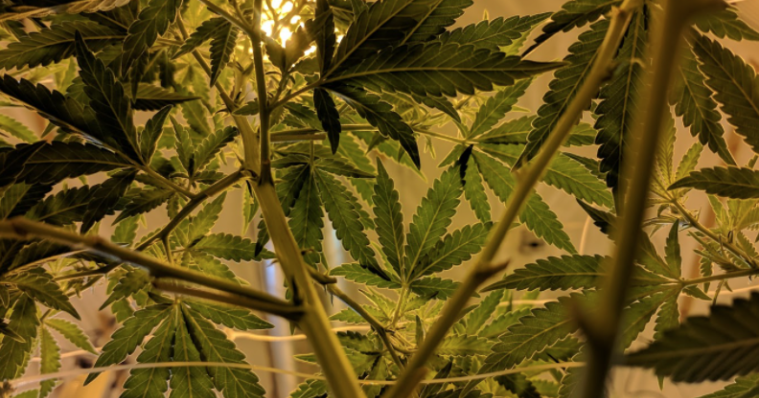In recent years, the cannabis market has experienced a surge in innovative products, offering consumers an array of options beyond traditional THC (tetrahydrocannabinol). Among the newcomers, THC-O and Delta-8 have gained significant attention. These compounds, while related, have distinct differences that influence their effects, legality, and overall appeal. To shed light on this topic, let’s delve into the intriguing world of THC-O cart and Delta-8 and explore what sets them apart.
Origin and Structure
Delta-8: Delta-8 THC is a naturally occurring compound found in cannabis plants, albeit in minimal quantities. It is structurally similar to Delta-9 THC, the well-known psychoactive component of cannabis, but with a notable difference: the location of a double bond in its molecular structure. This subtle variance impacts how Delta-8 interacts with the body’s endocannabinoid system.
THC-O: THC-O, short for THC-O-acetate, is a synthetic cannabinoid created by chemically altering THC. It is often referred to as a “designer drug” due to its lab-made nature. THC-O is significantly more potent than both Delta-8 and Delta-9 THC, making it a topic of debate within the cannabis community and among researchers.
Psychoactive Potency
Delta-8: Delta-8 THC offers a milder psychoactive experience compared to Delta-9 THC. Consumers often report a more clear-headed and less anxious high with Delta-8, making it a popular choice for those seeking relaxation without the intensity associated with higher doses of Delta-9 THC.
THC-O: THC-O, on the other hand, is renowned for its extreme potency. It is reported to be several times stronger than Delta-9 THC, leading to intense euphoria and hallucinations in some users. Due to its potency, THC-O should be approached with caution, as its effects can be overwhelming for inexperienced users.
Legality
Delta-8: Delta-8 THC has gained popularity as a legal alternative to Delta-9 THC in regions where Delta-9 THC remains prohibited. However, its legal status varies across different jurisdictions. Some states have explicitly banned Delta-8 THC, while others have embraced it, considering it a legal loophole. As regulations evolve, it’s essential for consumers to be aware of the legal status in their area.
THC-O: THC-O falls into a legal gray area. Its synthetic nature often leads to stricter regulations in many places. As a result, THC-O is generally considered illegal in most regions. It is crucial for consumers to thoroughly research local laws and regulations before considering THC-O products.
Medical Potential
Delta-8: Research into the potential medicinal benefits of Delta-8 THC is ongoing. Some studies suggest that it may possess antiemetic, anxiolytic, and appetite-stimulating properties. These potential benefits make Delta-8 THC an area of interest for researchers exploring new therapeutic options within the cannabis sphere.
THC-O: Due to its synthetic nature and extreme potency, THC-O has limited research regarding its medical applications. The lack of comprehensive studies and the potential risks associated with its use raise concerns among healthcare professionals and researchers. As of now, THC-O is not recommended for medicinal purposes due to its unpredictable effects and legality issues.
Consumer Preference and Experience
Delta-8: Delta-8 THC products, such as edibles, vape cartridges, and tinctures, have gained popularity among cannabis enthusiasts seeking a more balanced and manageable high. Its moderate potency and reduced anxiety-inducing effects make it an attractive choice for users looking for a relaxing experience without the overwhelming intensity of Delta-9 THC.
THC-O: THC-O products are not as widely available or commonly used as Delta-8 products. The extreme potency of THC-O can lead to unpredictable experiences, making it less desirable for many consumers. Due to its intense effects, THC-O is often approached with caution and reserved for experienced users seeking an exceptionally powerful psychoactive experience.
In a nut-shell, while both THC-O and Delta-8 belong to the THC family and offer unique psychoactive effects, they cater to different consumer preferences and needs. Delta-8, with its milder high and legal status in some regions, appeals to those seeking a balanced and relaxing cannabis experience. In contrast, THC-O, with its intense potency and legal uncertainties, is a niche product that demands careful consideration and responsible usage.
As the cannabis industry continues to evolve, it is crucial for consumers to stay informed about the products they consume, understanding the differences between compounds like THC-O and Delta-8 to make informed decisions. Whether for recreational or medicinal purposes, responsible usage and awareness of local regulations are paramount, ensuring a safe and enjoyable experience for all cannabis enthusiasts.

